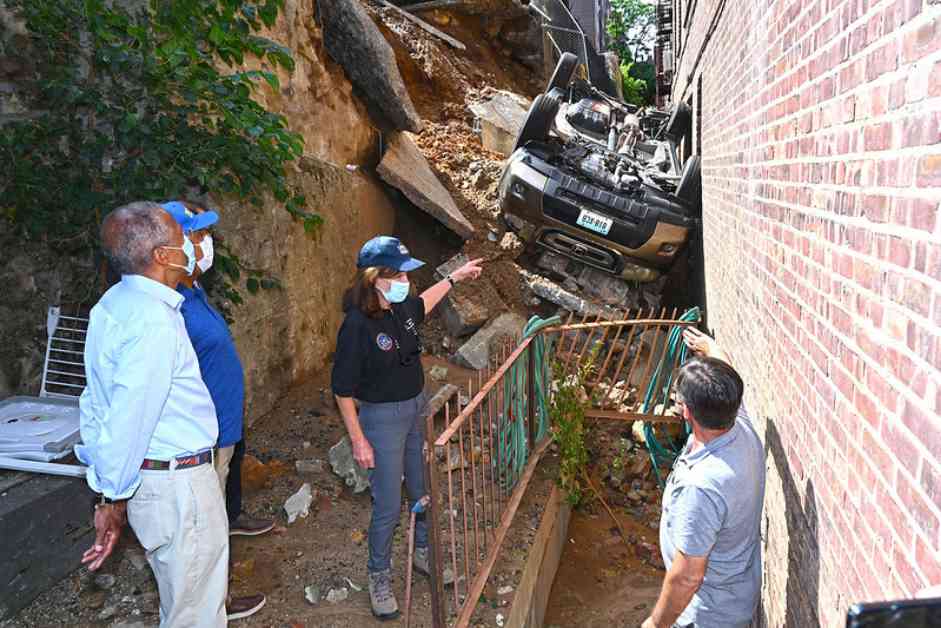New York is on the brink of passing a groundbreaking law that would require major fossil fuel companies to pay for the impacts of climate change. The Climate Change Superfund Act, which has already been approved by both the State Senate and Assembly, is waiting for Governor Kathy Hochul’s signature.
As activists gather in front of the governor’s office to deliver over 85,000 petitions urging her to sign the bill, similar efforts are gaining traction at the national level. A federal bill, supported by influential Democrats like Alexandria Ocasio-Cortez, aims to make the largest fossil fuel companies contribute $1 trillion over 10 years to address climate change impacts.
The idea is to hold these companies accountable for the greenhouse gas emissions they have released into the atmosphere. By calculating the amount of emissions above a certain threshold, companies like ExxonMobil, Chevron, Shell, and BP would be required to pay into a fund used for pollution cleanup, infrastructure rebuilding, and disaster assistance.
Experts have estimated the economic costs of climate change-related disasters to be over $150 billion per year in the U.S. Lawmakers believe that fossil fuel companies should bear some of these costs, given their contributions to climate change. The hope is that by making polluters pay, the burden on taxpayers and affected communities can be alleviated.
While the road to passing such legislation may face obstacles, there is growing recognition of the urgent need to address the climate crisis. With the severity of climate-related events becoming increasingly evident, lawmakers like New York Rep. Jerry Nadler are committed to pushing for action.
Despite challenges in the current political climate, there is optimism that measures to hold polluters accountable for their role in climate change will eventually come to fruition. As the conversation around climate action continues to evolve, the pressure is on for legislators and policymakers to prioritize the health of the planet and future generations.


